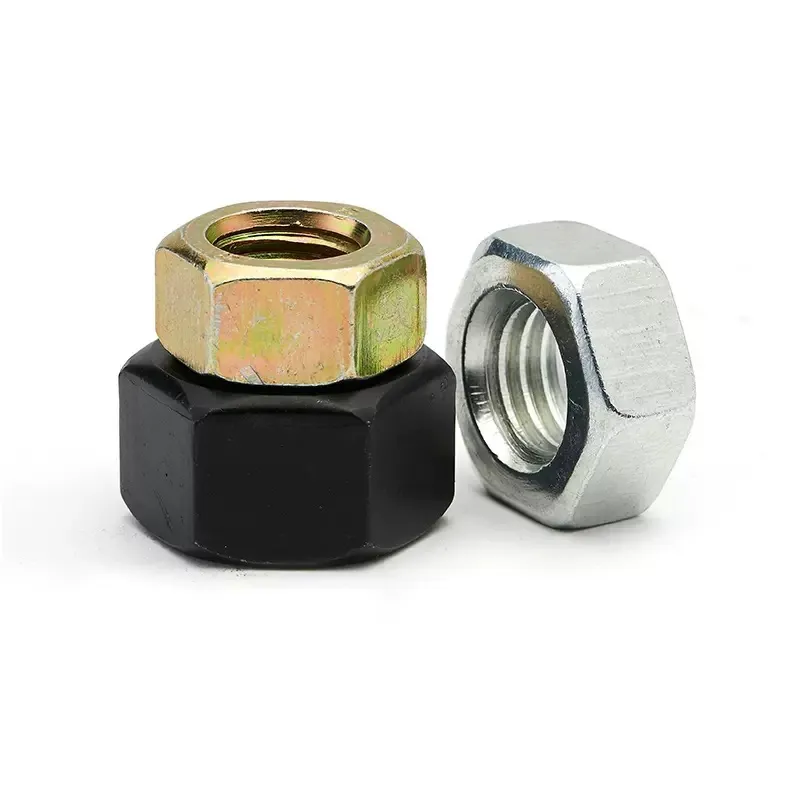

types of bolts
12月 . 20, 2024 14:37 Back to list
types of bolts
Understanding the Different Types of Bolts
Bolts are essential fasteners used in a variety of applications across numerous industries, from construction to automotive manufacturing. Understanding the different types of bolts available can help in selecting the right one for a specific job, ensuring safety, durability, and efficiency. This article aims to provide an overview of various types of bolts, their characteristics, and typical uses.
1. Hex Bolts
Hex bolts are one of the most common types of bolts used in construction and mechanical applications. They have a hexagonal head that can be tightened using a wrench. These bolts are generally used in conjunction with a nut and are designed to secure two or more components together. Hex bolts come in various grades, which indicate their tensile strength and performance characteristics. The higher the grade, the stronger the bolt.
2. Carriage Bolts
Carriage bolts are recognizable by their rounded head and square neck, which prevents the bolt from turning when the nut is tightened. This design makes them ideal for securing wood, as they are commonly used in furniture assembly, deck building, and similar applications. Carriage bolts are inserted through a pre-drilled hole, and once the nut is tightened, they provide a secure connection.
3. Lag Bolts
Lag bolts, also known as lag screws, are large, heavy-duty bolts with a hexagonal head. They are primarily used in woodworking and for securing heavy items to wood structures. The coarse threads of lag bolts allow them to grip into soft wood, providing a strong holding power. Due to their size and strength, lag bolts are often employed in building decks, furniture, and other load-bearing applications.
4
. Socket Head Cap ScrewsSocket head cap screws have a cylindrical head with an internal hexagonal socket (an Allen key) rather than a traditional external head. This design allows for a higher torque to be applied while minimizing the risk of stripping. They are commonly used in machinery and automotive applications where high strength and reliability are crucial. The sleek design also makes them ideal for aesthetic applications where appearance matters.
5. Eye Bolts
types of bolts

Eye bolts are characterized by a loop or eye at one end, designed for attaching a rope, chain, or cable. Eye bolts can be used in lifting applications and are often found in rigging and marine contexts. They provide a reliable way to secure connections and ensure controlled lifting of heavy objects.
6. Expansion Bolts
Expansion bolts are used for anchoring materials to concrete or masonry. When installed, the bolt expands within the hole, creating a strong bond with the surrounding material. These bolts are frequently used in construction, particularly for securing heavy fixtures like shelves, railings, and machinery to walls or ceilings. Expansion bolts come in various styles, including wedge anchors and sleeve anchors.
7. Flange Bolts
Flange bolts feature a built-in flange, which acts as a washer, distributing the load over a larger surface area. This design helps prevent the bolt from pulling through the material, making it ideal for use in automotive applications, construction, and machinery. Flange bolts also simplify installation, as they reduce the need for separate washers.
8. Shoulder Bolts
Shoulder bolts have a plain cylindrical shoulder that provides a pivot point for rotating parts. They are often used in hinge applications and provide a pivoting action in machinery and equipment. Shoulder bolts can come in various sizes and materials, depending on the application requirements.
9. T-Bolts
T-bolts are designed with a T-shaped head, which fits into a corresponding slot or channel. This design allows for easy adjustment and installation. T-bolts are commonly used in the building of frames, conveyor systems, and in applications where quick assembly and disassembly are necessary.
Conclusion
Choosing the right type of bolt is critical to the success of any project, affecting both functionality and safety. By understanding the characteristics and best uses of various bolt types, professionals and DIY enthusiasts alike can ensure their projects are secure and durable. Whether you’re constructing a deck, building furniture, or engaging in mechanical engineering, there’s a bolt designed to meet your specific needs.
Latest news
-
Hot Dip Galvanized Bolts-About LongZe|High Strength, Corrosion Resistance
NewsJul.30,2025
-
High-Strength Hot Dip Galvanized Bolts - Hebei Longze | Corrosion Resistance, Customization
NewsJul.30,2025
-
Hot Dip Galvanized Bolts-Hebei Longze|Corrosion Resistance&High Strength
NewsJul.30,2025
-
High-Strength Hot-Dip Galvanized Bolts-Hebei Longze|Corrosion Resistance&High Strength
NewsJul.30,2025
-
Hot Dip Galvanized Bolts-Hebei Longze|Corrosion Resistance&High Strength
NewsJul.30,2025
-
Hot Dip Galvanized Bolts - Hebei Longze | Corrosion Resistance, High Strength
NewsJul.30,2025

